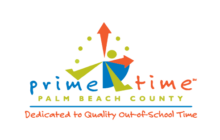9:00 am - 11:00 am
It was a great experience, I learned a lot. It gave me the opportunity to see some areas where I need to work to better my leadership and my program!
Lorena DAfterschool Professional
Quality Coaching – IN-PERSON
This highly interactive workshop explores effective strategies and techniques used to coach others on improving their efforts to work with young people.
You will practice three central concepts: establishing the foundation of trust and respect that is key to effectively coach staff; understanding the components of an effective observation and how to support staff in reflecting upon their own practices with young people; and creating a specific plan of action to grow your practice.
This workshop will give you the opportunity to experience and practice these concepts with your peers by taking turns coaching others under observation and receiving coaching in return. You will leave with communication tools and practical strategies to create a healthy environment that encourages staff to aspire to reflect on and improve their practices.
Please note: This management level training’s intended audience is for directors, managers, and those who are tasked with providing coaching supports/observations to front line practitioners.
Training Objectives
Participants will:
- Identify true coaching and discuss various coaching strategies.
- Review the observation-reflection methodology.
- Recognize the impact of power dynamics on coaching.
- Practice effective communication with staff.
- Conduct observation-reflection roleplays.
- Create a plan to begin implementation of practices.
Core Knowledge, Skills, and Competencies Addressed (CKSCs):
Program Planning and Development
Program Planning and Evaluation
Identify – A. Recognizes the importance of using data and evaluation.
Amplify – A. Advocates for strategic planning, goal setting, and evaluation for continuous program improvement.
Professional Development and Leadership
Ongoing Professional Growth
Identify – B. Values ongoing self-reflection, self-assessment, and problem-solving strategies to promote professional growth.
Primary QIS Scales Addressed
I. Safe Environment
I-E: Creating Safe Spaces

